Penelope Turing (1925-2010): "Heil dir, Sonne!" Meant Something in those Conditions
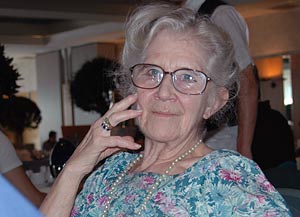
Penelope Turing (1925-2010), aged 83 at the time this interview was made, was a veteran in Bayreuth. She had seen every single production in Bayreuth since the Second World War, and she has reported from the Bayreuth Festival almost every year since 1952. Her biography on Hans Hotter was first published in 1983. She is also the author of the book New Bayreuth, first published in 1969. Wagneropera.net had this conversation with Turing in Bayreuth August 2008.
Penelope Turing, what was the first performance you saw here in Bayreuth?
It was Rheingold. That year, in 1952 I only saw the Ring, the Wieland Wagner production. The style was entirely new to everybody in those days. The simplicity, the grouping, and the acting. Wieland had a gift of getting acting out of his singers. And he would never have an unnecessary move. Every movement meant something. The same way with the voice and the singing. This was something completely new.
What did Wieland’s stagings look like?
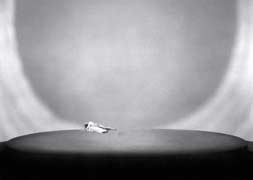
What I didn't like was the darkness. Wieland's early productions were very dark. You got wonderful effects like statuary groups of figures. One remembered them for years. He had practically no money to do it with, and very little scenery. There was just the bare stage, sometimes one or two striking pieces of scenery, and then what they in those days called the cyclorama, which was the back where he had wonderful colour effects. I remember well the Siegfried of that year – a completely bare stage. Brünnhilde had been put to sleep at the top, on the horizon line, as it were, of the stage. Siegfried comes up … you see this figure coming up, standing and looking around. The back was dawn. It was sunrise, there came the flash of those colours, and gradually getting paler and paler and yellow and then into bright blue. It was the black ground and it was the figure and it was Siegfried and the awakening of Brünnhilde. "Heil dir, Sonne!" meant something in those conditions.
How did you start appreciating Wagner? I mean, this was Britain, right after the war.
A good question. Well, my parents had been very fond of Wagner in London years and years before. It's quite a funny little story. I was an only child, and my father had died in 1950. It was just my mother and myself. My father had been an editor. I had started as a writer, a journalist. My mother, who had a great sense of humour, one day said, "Now, you're thinking of nothing but your work. You will become a deadly bore if you go on like this. What you need," she said, "is a hobby. I will subsidize a hobby. What would you like to do?" So I said, "My friend is taken to the Ring at Covent Garden every year by her aunt. I would like to see Wagner's Ring." I knew some of Wagner's music from the radio. "Right," said my mother, "I will buy you a ticket for the Ring." This was in 1951. And that was my first Wagner. I remember Rheingold, the beginning of the story, it was very dramatic and exciting. I went to Die Walküre, and I never knew how I got back to the place I was staying. I was dead drunk with the music. I remember an hour sitting on the side of my bed. I didn't know life had got things like that. And that sort of started me off.
Who was singing in that Ring?
It was Hans Hotter as Wotan, of course. I was very, very lucky because that was the last season Kirsten Flagstad sang at Covent Garden. I just caught her,
Flagstad was Brünnhilde, then?
Only in Götterdämmerung. Anny Konetzni was Brünnhilde in Walküre and Astrid Varnay, who was just coming up, in Siegfried. I also saw Flagstad as Isolde, and, which I think was rather rare, she sang Kundry. You don't often hear about her singing Kundry. So I got all those. One more year, and I'd have missed it…
At that time I was writing for a monthly magazine called Theatre World, not unlike the present Opera Magazine. I covered opera for them in London. And so I thought, "I want to go to Bayreuth. And see what happens." They were glad to get journalists, so they happily gave me press tickets for the Ring. That's how I first went in '52.
In England right after the war – there must have been mixed feelings about Wagner?
I suppose there were, but looking back on it, it really was rather remarkable because we had a thing called the Festival of Britain in 1951, which was a very good idea. It was to come back to joy and beauty and art and things like that, and we had theatres all over the country doing it, and they had food festivals with local cooking. I didn't realize it at the time, but Covent Garden actually put on a season with seven Wagner operas, two cycles of the Ring, Parsifal, Tristan, and Meistersinger. It was quite a remarkable thing that they did it so soon after the war.
In Britain, since George Bernard Shaw, there has always been a strong Wagner tradition. Many sociologists, especially of the 1970s, tend to make a rather simple, black and white picture of the political function of Wagner, but you describe a different picture that is much more nuanced.
Well, of course there are always people who will plunge into that and pick up these political angles, and there are always people who are trying to cast us back to the war and find antisemitism in places, and so they have their time landing on poor Wagner. He did say nasty things about the Jews, but I mean he wasn't alive in Hitler's time. Of course there was the problem at Bayreuth with Winifred. They wouldn't have been able to carry on the Festival if she hadn't admired Hitler and he hadn't been a Wagner addict, but it very nearly killed it afterwards.
Of course, there is the documentation of all this, with the photos of the young Wieland and Wolfgang together with Hitler and so on…
Yes, yes…
But do you find that Wagner's music dramas contain anti-Semitic elements?
No, I don't think they do. I think music is a great peace maker, a great bond. And in fact, it is very interesting to see how many Jewish artists and conductors have been appearing at Bayreuth after the war.
Wieland had the slogan from his grandfather, “Kinder, schafft Neues!” And he put that to the extreme: The only way to be true to the tradition is to break with it, to do things in a new way.
Yes, yes…
…But there must have been many conservatives opposed to his productions?
There were conservatives, and particularly German ones.
How were their reactions? Was there any booing?
No, never any booing, no, no, no, that came much later. I think the booing first came with the Centenary Ring in 1976.
…Or maybe with Tannhäuser in 1972, by Götz Friedrich…
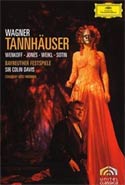
Yes, yes. In the fiftes there was nobody doing that, no booing at all.
At that time it was possible to get tickets because the festival was not so famous and there were not so many people coming. Therefore there was quite a lot of people who came regularly every year. And they knew their Wagner, far more than the modern audience does. You would hear people discussing individual performances and styles, where today there would be many people there who haven't seen much Wagner anyway. But the anti-Bayreuth people were primarily Germans – who were strongly against the support of Hitler. They were not among the foreigners. The foreigners simply wouldn't come if they were anti Wagner.
All this has been worked up a lot later. For instance by people like Gottfried Wagner. But in fact, one doesn’t hear so much about him now.
After the first Ring production by Wieland, the next Ring was by Wolfgang Wagner?
No, Wieland had two. The first one came in 1951, and I saw it in '52. And then he had another one just before he died, in 1965. Wolfgang's first Ring came in 1960, and he also did one in 1970. So there were four Ring productions by the Wagner brothers, and no other directors, before we moved into the Chéreau Ring in 1976. That was the first different Ring.
Were there other directors in the fifties?
No, no other directors. This was quite interesting. Except in the first year and in '52. They thought they'd have a Meistersinger, and as Wieland was doing an entire Ring and Parsifal all at once – I don't know how he did it – they borrowed a production of Meistersinger from Munich directed by Rudolf Otto Hartmann. I didn't see it. It was an existing, sort of traditional Meistersinger. They only did it two years, and then it was gone. Until after Wieland's death every single production was by one of the Wagner brothers.
There were no other directors before Wieland's death?
No, but later August Everding had a production of Der fliegende Holländer in 1969, and Götz Friedrich came with a new production of Tannhäuser in 1972.
What did you think about Wolfgang Wagner's Ring when it came?
I loved it! I thought that Wolfgang's first Ring was brilliant. The second was rather similar. It was very simple. It was the style of the two brothers.
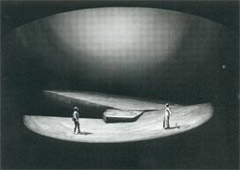
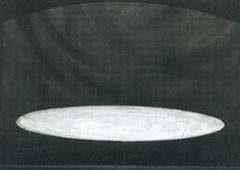
He had a circular disc on the stage. The disc was split into sections. He made his different sets with different sections of this split disc, as they called it. It was very effective. I mean, you got the effect like a gorge for Walküre, dark, with the two sections, and then Brünnhilde comes in through it. Then at the very end of Götterdämmerung the parts all quietly subsided back into the circle. It was bare, nobody on it. It was representing night at that point. And the lighting – both brothers were brilliant with the lighting – it was a silvery blue. And so it was just perfectly complete again, and the light was on. Both an American colleague and I found that this was the most exciting staging of the Ring we had seen in either of our careers.
That is a very strong statement. Beautiful.
Yes. But it is true.
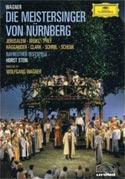
Now, Wolfgang Wagner has been much criticized for his productions, especially for his so called Personenregie, or his lack of it.
Well, I find it extraordinary that they criticise him for that, because I would have said that this is one of his great forte. Have you seen any of his Meistersinger productions? He really depicts every Meister as a character. And he doesn’t overdo it. They are impersonating somebody, they are not little robots. He gets acting out of the singers. Wieland did, too. They both worked on that. In later years when I've seen so many of the other people's productions, my goodness, I have wished we had Wolfgang, getting the personality out of the characters. Wolfgang had – well, has – a lovely sense of humour. Yes, it's fashionable to criticise Wolfgang…
What about the Parsifal in 1966 with Pierre Boulez? Did you attend to that?
I did indeed. I thought it was very beautiful. It wasn't a new production, it was still the old Wieland production. Boulez’s conducting was beautiful. Quick, but not radically quick. I mean, it depends on how you do it, doesn't it? You know, it's rather like some of the other conductors, and everybody say "they are so slow".They were slow, but you weren't aware of their being slow, because it was right. I mean, I'd prefer a slower reading of Parsifal, but I thought Boulez was fine. Wieland's Parsifal went on for 23 years, from 1951.
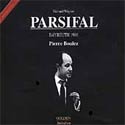
Many regarded Boulez as an extremist, a modernist opposed to the more romantic conductors like Karajan and Knappertsbusch and so on. How did you experience these other conductors?
Karajan was only there for two years, you know. He was too strong a character, I think. He and Wieland didn't quite hit it off. Knappertsbusch was a great character, much beloved, and very well known for many, many years.
What did you think about the British Ring, the Peter Hall Ring?
The Chéreau/Boulez Ring was called the French Ring, or the Centenary Ring. And after the French Ring, we had the British Ring, the Peter Hall Ring, an attractive sort of fairy story.
Georg Solti only conducted one year and then he pulled out. Peter Hall was disliked intensely in Bayreuth. I remember talking to Gudrun Wagner. I said, "The British aren't very popular at the moment, are they?" "There's only one Britain who is unpopular," she answered. She said, "I said to him, if you would only learn a few phrases in German, to sort of greet the staff and that sort of thing." But he didn't. And I was amazed at that. I can't imagine anybody producing and not knowing the least little bit of the language of the country in which you are doing it. Anyway, the more they disliked him, the more passionately they liked the French Ring.
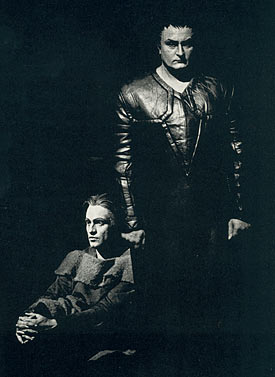
Let's go back to the 50's. Are there any particular great singers that made an impression on you?
Well, certainly Hans Hotter, of course. And Astrid Varnay, Martha Mödl, Josef Greindl and Otokar Kraus. Kraus also sang in London. And of course there was Wolfgang Windgassen. He wasn't a very good actor at that stage, in the early fifties. But he had this lovely voice, not a Heldentenor, but he went on and on and he became an extremely good actor. Robert Dean Smith is almost becoming the Wolfgang Windgassen of this time. He can be called upon to do practically any Wagnerian tenor leads, and do them well. If you look at all the best recordings of the fifties and early sixties, you can hardly ever find a different tenor from Windgassen.
How did you meet Hans Hotter?
Well, that's another story. He was singing in the London '51 Ring, with Kirsten Flagstad. I didn't meet him personally until 1957. You see, in 1958 was the Centenary of the Covent Garden Royal Opera House, that building was a 100 years old in '58, and I was doing a big illustrated article for one of the women's magazines. And I thought it would be a good idea to have an interview with one of the well known singers who performed at Covent Garden a lot, so I asked him to come and have lunch with me at the Dorchester, which he did. And that's when we got to know each other.
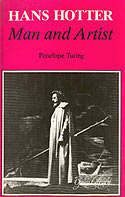
How was Birgit Nilsson, the "Birgit Nilsson experience"?
Her performances were superb, wonderful! I used to say that Flagstad's voice was like pearls, and Nilsson's like diamonds. It was a wonderful roundness about Flagstad's tone.
I remember Hotter said that she (Nilsson) can always be relied on. I can't really think of any other more recent dramatic soprano with the beauty of either of those. But as far as acting is concerned Astrid Varnay was a brilliant woman, and a very good singer.
In the fifties they very often had in their cast two dramatic sopranos and one tenor. They could alternate with Martha Mödl and Astrid Varnay. They were both very, very good, and entirely different in their interpretation. Martha Mödl was the feminine, sweet, gentle, loving voice and acting. Astrid Varnay could do that, but it was not her way. She was dramatic, she was hard, she was brilliant. They were both good actors.
So do you think the singers were better in the fifties than they are now?
Yes, I do think so. I know this sounds like any "an old woman can always say that", but I think it's partly their training. They generally had very good teachers who were very particular and didn't let them rush into big roles until they were ready. And therefore you got people who would go on singing to an amazing age. But I think today they often do too much too quickly, and the voice suffers.
Do you think the singers of today have to do too much gymnastics on stage?
Yes! (laughing) I think so! They do make them run about too much, I think.
Can you give us an example?
Take this Tristan here, directed by Christoph Marthaler. It's one of these "production things". I always wonder why they don't seem to think it through. I mean, having modern dress is fine, but then you have to stop and think. If you have scenes where they are carrying swords or fighting with swords or spears, it is very difficult wearing a modern dress.
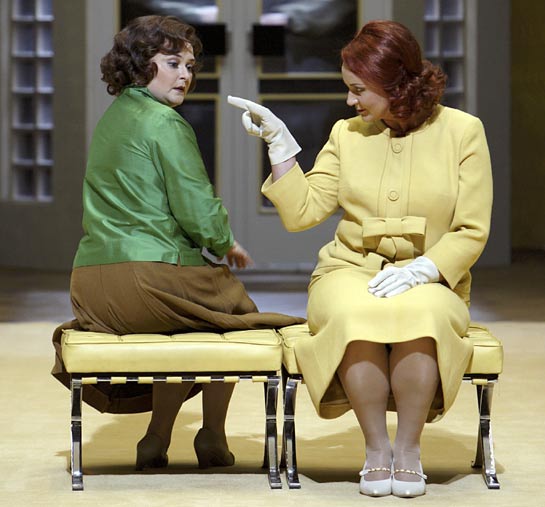
Marthaler has a permanent set, which by the way isn't a very good one. In the first scene it is an enormous, bare deck, of a pleasure steamer, I presume – not the kind you would go and fetch a princess with, but never mind, with chairs dotted all over, rather untidily. And when Isolde is getting frustrated and irritable, she takes it out by throwing chairs over. She walks around and throws them over. And Brangäne more or less follows her around and picks them up again.
In the second act, Robert Dean Smith sings very well indeed, so the love duet is beautiful. That was the good part of it. And then, the third act is apparently in a hospital ward. You find Tristan in a hospital bed, the adjustable kind, on a little platform with rails in front of it and after a bit he gets up. Singing went very well indeed, but most odd, there is a sort of procession of men who come in, rather like a lying in state and walk around this platform. He is not dead at that point; he's alive in the bed. They don't do anything, they just look at it and see it and then walk out again. I have no idea what this is supposed to mean. And there is Kurwenal hovering about, wearing a Scottish kilt, which puzzles me extremely, not that it matters, but still I cannot see the reason. One would have thought he was Cornish, from Cornwall, but never mind. And poor Kurwenal … how long do you think it would have been between the time of the fight when he was injured and the time the third starts?
Some weeks, maybe…
Some weeks, possibly months. Well, by this time Kurwenal, who was hopping about in the previous act is now so old and so decrepit. I know a lot about that, because I am just like that myself. He is holding on to the rails around the bed and shuffling his feet, and you think: "What has happened to him in such a short time?". Well, then after a bit Tristan rolls down off the platform and ends up on the ground and apparently is dead. A little while later Isolde comes in, looks around and then she sees, and then she goes over. After a bit she gets up and on to his bed and waits there. Then King Marke comes in, Robert Holl, beautiful, beautiful voice, but he is not a great actor, at the best of times he doesn't have the beauty of a great King Marke, which is so moving when you hear it.
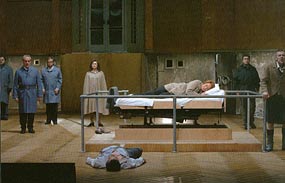
Then Isolde gets up, and standing on the platform by the bed, she sings the Liebestod, and when she has sung the Liebestod she goes back into the bed, she lies down. Then after she is finished with singing, she pulls the sheet up over her head. I think, if you've seen it, she is very, very funny. But I don't think any producer ought to have one of the most exquisite bits of music ever written marked by a sort of comic turn. You'd think one of Marthaler's understanding friends would have told him. It's been going for several years now; they haven't done anything new about it. People might take it the wrong way.
The producer has more power nowadays, don't you think so?
I remember years and years ago there was a production of a Tristan in London, I think it was a Peter Hall production. While Isolde was singing the Liebestod, I think it was Catarina Ligendza, he had the scenery moving about behind her, the walls. And I thought, for heavens sake, how could he move the scenery about at that moment! I understood later that when Birgit Nilsson came to sing in this production she said “No, not when I am singing!” She was big enough to be able to do that, you see.
I don't think singers can do that today.
I don't think they can. It's very tragic.
How was the experience of the Bayreuth Festival in the 50's compared to now?
It was a passionate joy of the people of Bayreuth. I mean, they were so proud of it, their Festival had come back at last. There was no damage to the Festspielhaus, but quite a lot of bombing and damage in the town. They came out and every single person was interested. There were only about one or two hotels, so everyone took in guests in the old way, of Wagner's own time. So you stayed with families. They turned up before performances to see the people going up to the Festspielhaus. They lined up like waiting for royalties to see the elaborate evening dresses, with children in prams and dogs on leads, all waiting to see the people going up. And they had women out working in the gardens and the parks, they had fairly rough paths, so there were women with brooms and things, arranging and tidying up to keep it all in perfect order. And all the people in the shops, everybody wanted to know what you thought about it and if you were happy about it.
The Festival was their first great chance. Of course, as the years went on, they got so used to it all. But in those days, it was their time, their Festival, their Wagner.
What about the family conflicts and, for instance, Wieland's affair with Anja Silja? Did that make people here unsympathetic towards the Wagner family?
No, I think they accepted that as a romantic thing. And everybody knew about that. I think the ones who really like the family, do respect them and regret the bickering that you've heard so much of since. The other ones take it as gossip. I don't think you can do anything about the quarrelling in the Wagner family. It does seem to exist.
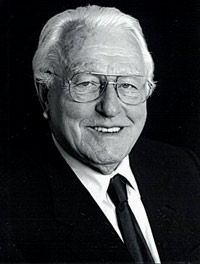
Did you know Wolfgang and Gudrun?
I knew Gudrun when she was secretary of the press officer. She married Dietrich Mack, who was not the press officer, but was doing something on the literary side. And then she and Wolfgang both got a divorce, and they got married. I think she was devoted to him. I think she was a very good wife to him. There was rather a lot of nasty gossip at that time. I had known her through her work in the press office. It wasn't up to me to judge her for her marital things. I was very fond of her and stuck to her, and I think she appreciated that. So we were quite good friends, and I was terribly sorry about her sudden death last year. Terribly sorry.
I remember one time I went to see them. Well, I always saw her. My German was so bad, and Wolfgang wouldn't talk English, you know. But that year, I think it must have been my 25th or 30th time at the Festival. So I was with her, and Wolfgang was full of beans that day, and he rushed out Then he came back with two large bath towels as a present for me with "Bayreuther Festspiele" printed on them, and asked if I would like to have them as a memento from this occasion. He had a lovely sense of humour over things like that.
What about the relationship and the conflicts between Wolfgang and Wieland?
One hears a lot about it now. At the time, I think they covered it well as far as the public was concerned. I don't think the public in those days were aware of it. Wolfgang was very tactful in his autobiography, wasn't he?
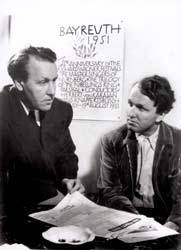
Wieland must have been quite a character?
Yes, I don't think he was easy. He didn't have his brother's sense of humour. Wolfgang has an easy manner, easy way. And he has been very loyal. I remember the British producer Keith Warner, who produced Lohengrin here, a production I disliked by the way. Warner wrote an article, and he said how nice Wolfgang had been to him, although Wolfgang himself did not like Warner's production, but he had invited him to come and do it, and he would back him to the hilt. Even though he didn't personally like it. I can imagine that Wieland probably would not have been like that.
Do you think the Festival ought to remain in the Wagner family, with Katharina and Eva?
Yes, I don't see why not. Katharina is born and bred in the middle of it. She has been trained up for this. What would be perfectly disastrous, I think, is what Nike Wagner has proposed, having other operas. That is very silly. The building was built by Wagner for Wagner. Since they could take ten times as many people, but haven't got room for them, they don't seem to be doing the wrong programme…
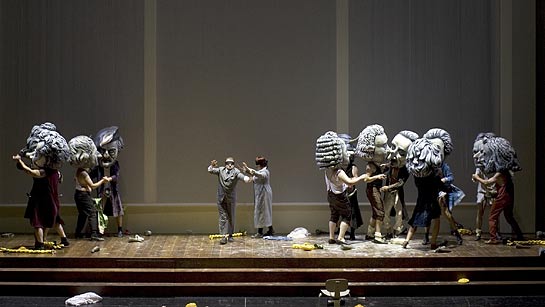
Have you seen Katharina's Meistersinger?
Yes, I saw it last year, but I don't look forward to seeing it today. All those masks and…
Sachs is such a wonderful character. But here he is a chain smoker and a drinker. Katharina out-modernized the others.
Do you know what Wolfgang thinks about her Meistersinger?
No, I don't. But I do know that he is devoted to her, and she to him. She is a father's girl and very devoted to him.
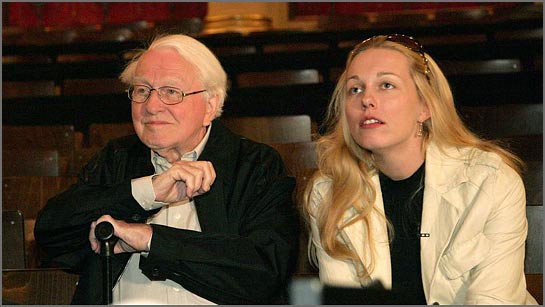
Do you have any special memories from the festival?
There was a Parsifal in about 1968. It was a lovely summer night. I was standing listening for the fanfares before the second Act. The sun had gone down. Beside me was a man. He said he was an American and that he came here when he was a GI in the Army during the war and then he said: "I must come back and hear Parsifal here before I die." And then the fanfare sounded and we went in for the second Act.
Before the last Act we were standing once again listening for the fanfare, and there was the same man.
He just looked at me and said: "Now I can die!"
Penelope Turing (1925-2010)
Penelope Turing, Bayreuth Festival expert, traveller, author, critic and lecturer died this morning in London, 85 years old.
Opera, especially Richard Wagner, has been a major influence in her life. Turing is the author of "New Bayreuth", first published in 1969. This book is an important source to the post war productions at the Bayreuth Festival.
Her biography on Hans Hotter was first published in 1983, and each year she gave courses in Britain on Wagner’s operas and on the new post war style at Bayreuth.
Turing is one of the very few persons that has seen every single production at the Bayreuth Festival since the Second World War, and she has reported from the Bayreuth Festival almost every year since 1952. Her last Bayreuth visit was in 2009, which she was covering for The Stage. Although faltering health has restricted her travelling lately, she had planned to see the new Lohengrin production, and she was perfectly aware that this visit would have been her last.
I met Turing for the first time during the Festival in Bayreuth in 2008. We attended the same performances, and it was impossible not to be moved by this tiny old woman who had severe difficulties walking, but was friendliness herself, very British, and with a wonderful sense of humour and irony. We talked during the one hour intermissions, eating Wurst with mustard, and she was happy to share her Bayreuth experiences with Wagneropera.net's readers in an interview that Erling E. Guldbrandsen and I did with her at the Arvena Kongress Hotel that summer.
Just five days before she died we spoke on the phone. She told me she had to cancel her Bayreuth trip this year, and it was obvious that she was very weak when we spoke. She laughed out loud, though, when I told her about the rats in the new Lohengrin production at Bayreuth. The creativity of the Regietheater productions she never really liked, but even though she did not approve of the new New Bayreuth, her lifelong love for the Bayreuth Festival, and her appreciation of the work done by the people at the Bayreuth Festival, never died.
Per-Erik Skramstad
Wagneropera.net recommends
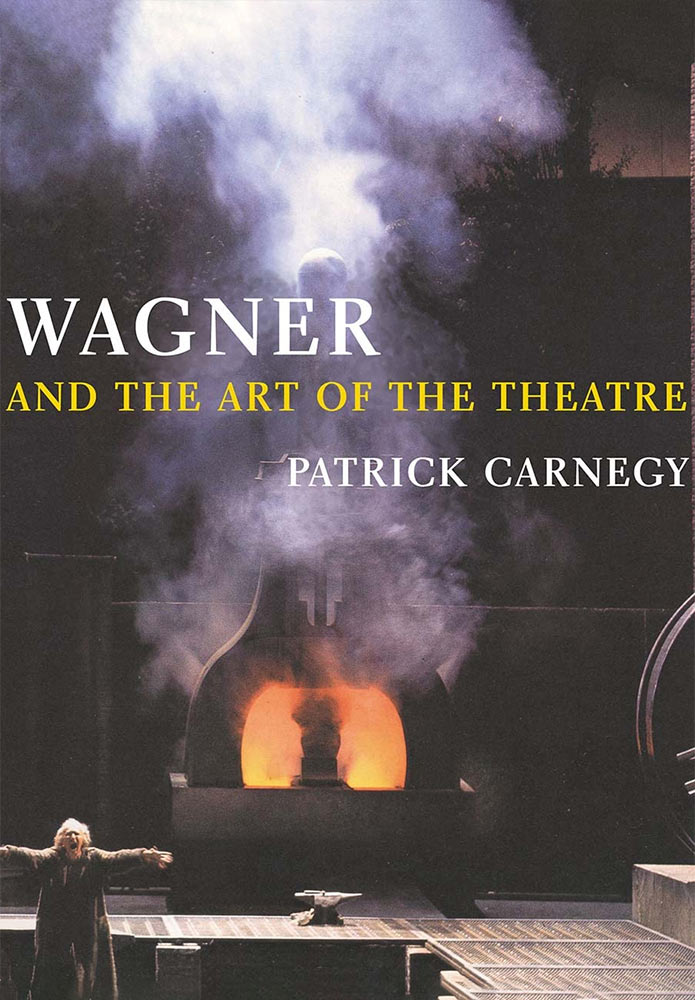
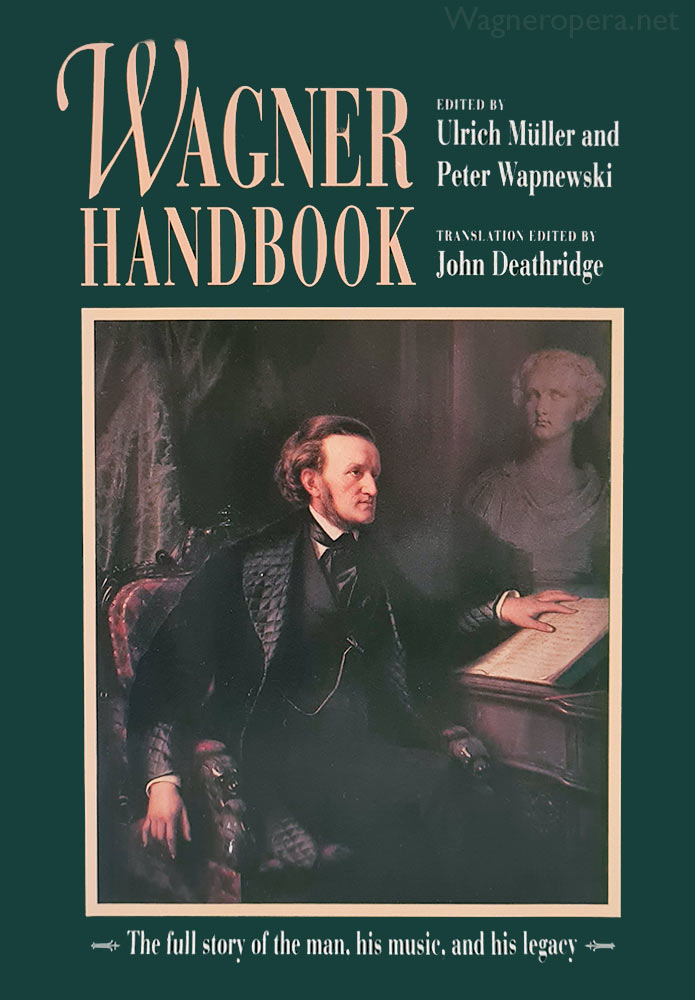
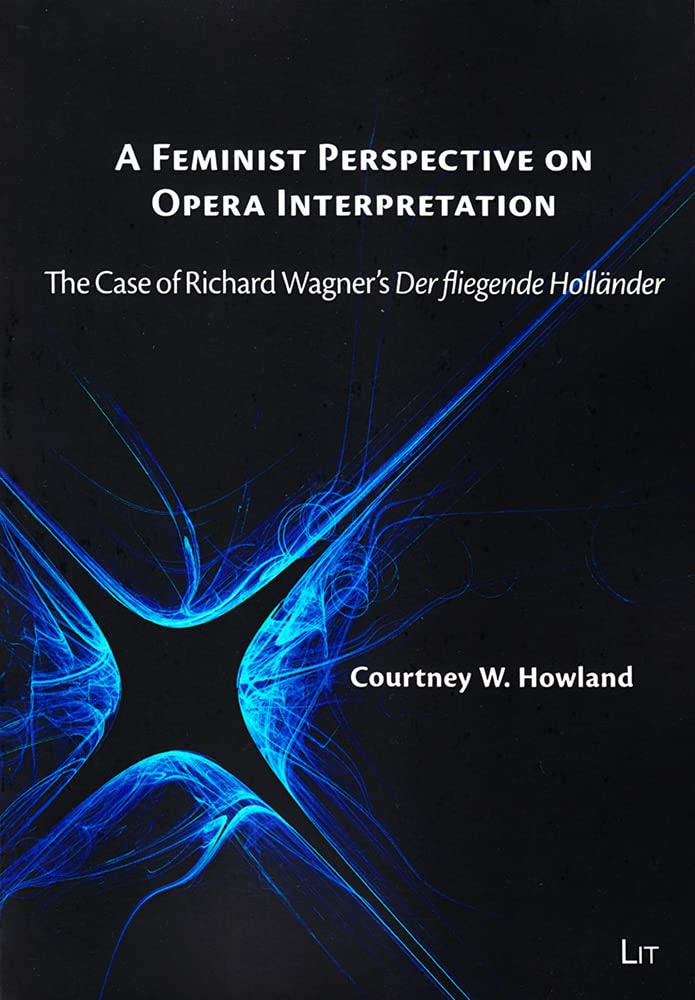
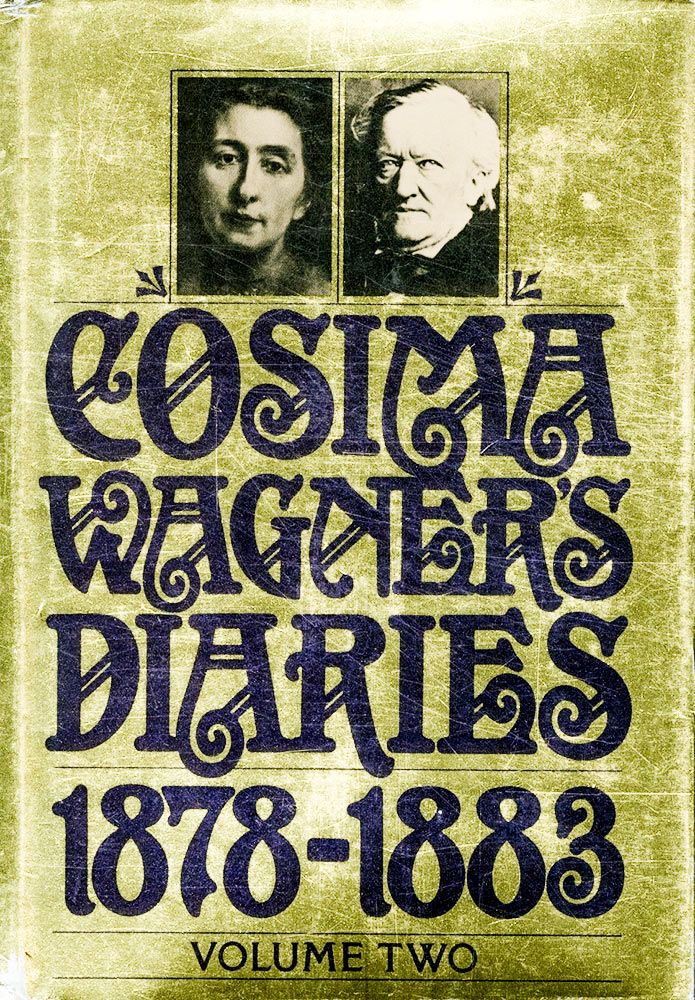
Interviews
Peter Konwitschny: I do not consider myself a representative of the Regietheater
Alexander Meier-Dörzenbach: There is so much more than mere sentimentality to this great opera
Detlef Roth: Amfortas' Suffering is Germany's
Kasper Holten: Tannhäuser's Rome narrative is perhaps all fiction—but it is his best story ever
Lisbeth Balslev: You come to Bayreuth for the sake of art
Iréne Theorin: Isolde is incredibly intense, and that really suits me
Graham Clark: I just switched hobbies
Anne Evans: At the time I hadn’t realised what a powerful impact it made
Johanna Meier on Isolde, Bayreuth and Ponnelle
Lioba Braun on Brangäne, Bayreuth and Wagner
Stephen Gould: Tristan is the end of the line
Penelope Turing: "Heil dir, Sonne!" Meant Something in those Conditions
Daniel Slater: The creation of the self through love and death
Sharon Polyak on West-Eastern Divan Orchestra, Wagner in Israel, Bayreuth
Stefan Herheim interviews
Stefan Herheim on Daniele Gatti, tempi and staging of preludes
Herheim on Parsifal: The Theatre is my Temple
Stefan Herheim links



